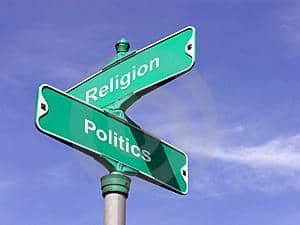Arsonists threw Molotov cocktails into a Conservative synagogue in the Jerusalem neighborhood of Ramot on Saturday evening, setting fire to the building's interior and causing thousands of dollars of damage, synagogue officials said. On Sunday, vandals also reportedly stole a Bible scroll from a Messianic Jewish congregation known as Netiv-Ya in Jerusalem's downtown area.
Rabbi Ehud Bandel, president of Israel's Masoreti (Conservative Judaism) Movement, said police were investigating the possibility that an extremist Orthodox group carried out the arson attack.
An eyewitness reportedly saw three men wearing Orthodox skullcaps running from the Ramot synagogue site Saturday night just after the arson attempt, Bandel said. Police were still investigating the incident, as well as the subsequent theft from the Messianic Jewish congregation.
Messanic Jews are Jews who accept Jesus as the messiah while still following some Jewish traditions and liturgical forms. Most mainstream Jews--Orthodox and non-Orthodox alike--consider Messianic Jews to be converts to Christianity.
Bandel blamed Israeli government and religious officials for turning a blind eye to previous similar acts of violence, saying that such an attitude encouraged extremism.
"Exactly three weeks ago, someone tried to burn up the same Ramot synagogue by setting fire to the front door," Bandel said. "When that happened, we turned to [Jerusalem] Mayor Ehud Olmert, to Israel's chief rabbis, and to the government authorities asking them to vehemently denounce the act. But we didn't get a response.
"It's tragic that in the Jewish state, we are witnessing the burning of synagogues," added Bandel. "I'm sure that if something like this had happened abroad, it would have been loudly denounced, but when things happen in Jerusalem, there is silence. People failed to read the writing on the wall.
"We as a movement denounce all such attacks, including the recent attack on the Messianic Jewish congregation, with which we have serious disagreements. Period."
Bandel said the synagogue fire consumed prayer books and Bibles, although the flames were put out just before they reached the cabinet where three Torah scrolls, containing the first five books of the Hebrew Bible, were kept. Handwritten Torah scrolls are regarded as sacred objects, and they usually cost thousands of dollars each.
"The irony is that these are exactly the same prayer books and Bibles that are used in an Orthodox synagogue," said Bandel.
Saturday's fire, in contrast to the arson incident of three weeks ago, drew public comments and condemnations from top government officials, including Prime Minister Ehud Barak and Chief Rabbi Yisrael Meir Lau.
Barak in a press release described the arson attempt on the synagogue as a "horrible act that chills the souls of all Jews."
Lau, meanwhile, told Israel Radio that "book-burning" could eventually lead to more serious attacks that threaten human life.
The attacks come against a background of rising secular-religious political tensions, sparked by a prolonged political struggle by the ultra-Orthodox Shas Party to obtain more government support for its quasi-private educational system in exchange for continued participation in the Barak government.
Shas officials, including Religious Affairs Minister Yitzhak Cohen, have refrained from commenting on the violence, which for many Jews in Israel stirs chilling memories of pre-World War II Europe.
One lone member of the ultra-Orthodox United Torah Judaism party, however, did speak out publicly against the recent weekend's violence.
"I certainly denounce these acts," Knesset [parliament] member Avraham Ravitz said in an interview with RNS. "I hope that the police make a major effort to find these people, because for me it's a mystery who would provoke such attacks. The ultra-Orthodox public certainly can't profit, they can only lose."

